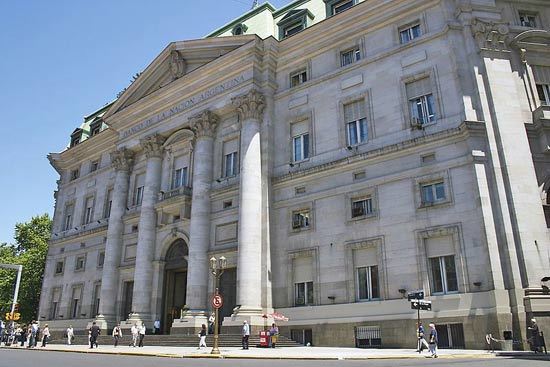Emerging markets are defined as economies which are making the transition from a low income / developing economy to a high income ‘developed’ economy. Key emerging markets include: China, India, Brazil, Mexico. Emerging markets are mostly based in South East Asia (excluding Japan) and Latin America. Emerging markets often have a high rate of economic growth, but can be more vulnerable to crisis of confidence due to misaligned exchanged rates and/or bad debts.
In recent months, several emerging markets have seen a fall in the value of their currency due to concerns over aspects of their economy. This has led to a wider contagion (spreading of fear and concerns) to other emerging markets.

Causes of the Emerging Market crisis
1. Individual country specifics. The crisis is partly caused by specific problems in individual countries (e.g. Argentina, Turkey, India)
- The worst affected economy is probably Argentina. Argentina suffered a severe economic crisis in 1998-2002 where Argentina defaulted on government (sovereign debt) and was frozen out of international bond markets. The Argentina economy did recover, but similar problems are now returning. The problem is that memories of the last crisis are fresh in people’s mind, undermining confidence in the Peso. Also, Argentina is struggling to finance its government debt.
- Argentina is facing inflation of up to 30%. This is causing people to lose confidence in the currency (Peso). Despite restrictions on exchanging currency, many Argentinians are buying dollars on the black market (at 12 Pesos to 1 Dollar) This is a worse exchange rate than the official exchange rate of (8 to 1), but Argentinians worry the devaluation in the Peso will continue making their currency weak.
- Foreign exchange reserves in Argentina are falling as the government unsuccessfully tries to prevent the fall of the Peso. To stem the flow of foreign exchange reserves, the government have implemented controls on buying foreign goods online, but this has also decreased confidence.
- Rapid devaluation. Because of fears over inflation, government debt and lack of foreign reserves, the Peso has fallen at a faster rate than in 2002. This will aggravate Argentina’s inflation, (because imported raw materials will become more expensive after devaluation). However, devaluation will help Argentinian exports become more competitive.
2. Fed Tapering
The realisation the US Fed Reserve will soon begin tapering its bond purchases was a factor in precipitating some of the currency falls and concerns over emerging markets. A Fed tapering raises prospects of higher US interest rates making the US more attractive to foreign investment. Emerging markets have benefited from an inflow of capital during the US / global financial crisis, causing an appreciation in Emerging market currencies. But, this factor is now liable to be reversed.
Brazil’s President Dilma Rousseff complained recently that “the withdrawal of the monetary stimulus in developed countries” was fuelling “market volatility.” Some have even suggested unfair currency wars.
An end to ultra low-interest rates in the US, will see capital flows return to the US. Also, in a few years, the EU could become more attractive for capital flows.
3. Fears of slower growth in China
Despite economic growth of 7 – 7.5%, some fear that the Chinese economy is hiding underlying weaknesses. Analysts jumped on a survey which suggested manufacturing output was falling in China. There are also concerns about the level of bad debts in the Chinese banking system. To some analysts, China has worrying signs of a property and investment bubble, which could burst with devastating consequences. China is important for emerging markets because it is a big purchaser of raw materials and commodities, which are a source of growth for other emerging markets. Lower demand for commodities leads to lower prices and lower incomes. China is also a big investor in emerging markets. A real slow down in China would have a big adverse effect on other emerging market economies.
However, fears of a Chinese economic slowdown may be exaggerated. A one-off survey on manufacturing output is not necessarily a reliable guide to the economy. There are hopes that the Chinese economy will become increasingly diversified and a growing Chinese middle class could become a new source of import buying, which will benefit the world economy.
4. Economic fundamentals
With markets jittery, countries with weak economic fundamentals will be more vulnerable to falling currency. Countries with large current account deficits, high inflation, high government debt and poor tax collection will increasingly be sold off.
However, compared to the last emerging market crisis, countries have not borrowed so heavily in dollars. Most government debt is issued in local currency rather than dollars. Thus, when the local currency falls, it isn’t so hard to pay back debt as when it was denominated in dollars.
Conclusion
There is an element of contagion. Fears in some emerging markets can make investors more nervous about similar emerging markets. To some extent, the fate of emerging markets are linked together. If China suffered a decline, many emerging markets would suffer. However, in recent decades emerging markets have become increasingly diversified. The economic fundamentals in Argentina are very different to Mexico or Malaysia. Some countries have much less to worry about than others. Also, the relative strength of the US and Euro should not be overstated. Emerging markets are still forecast to have higher rates of growth than the developed world – even if the gap has narrowed.
Related

Forecasting extrinsic shocks is crucial for a timely response to a possible crisis in the future. Please join the discussion on the G-global platform. http://www.group-global.org/en/direction/view/sozdanie_sistem_rannego_viyavleniya_istochnikov_nestabil_nosti